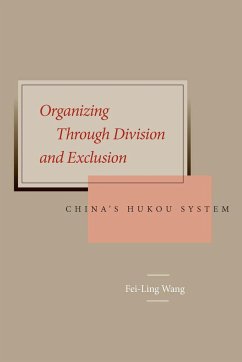This book is the first comprehensive examination of China's hukou (household registration) system. The hukou system registers and governs the 1.3 billion Chinese, while creating deep and rigid divisions and exclusions; in many domains the system determines how the Chinese live and shapes China's sociopolitical structure and socioeconomic development. This book shows that the system has made both positive and negative contributions to contemporary Chinese society: it has helped foster rapid economic growth and political stability, but also has reinforced social stratification, the rural-urban divide, regional inequalities, and discrimination and injustice. >
Hinweis: Dieser Artikel kann nur an eine deutsche Lieferadresse ausgeliefert werden.
Hinweis: Dieser Artikel kann nur an eine deutsche Lieferadresse ausgeliefert werden.








